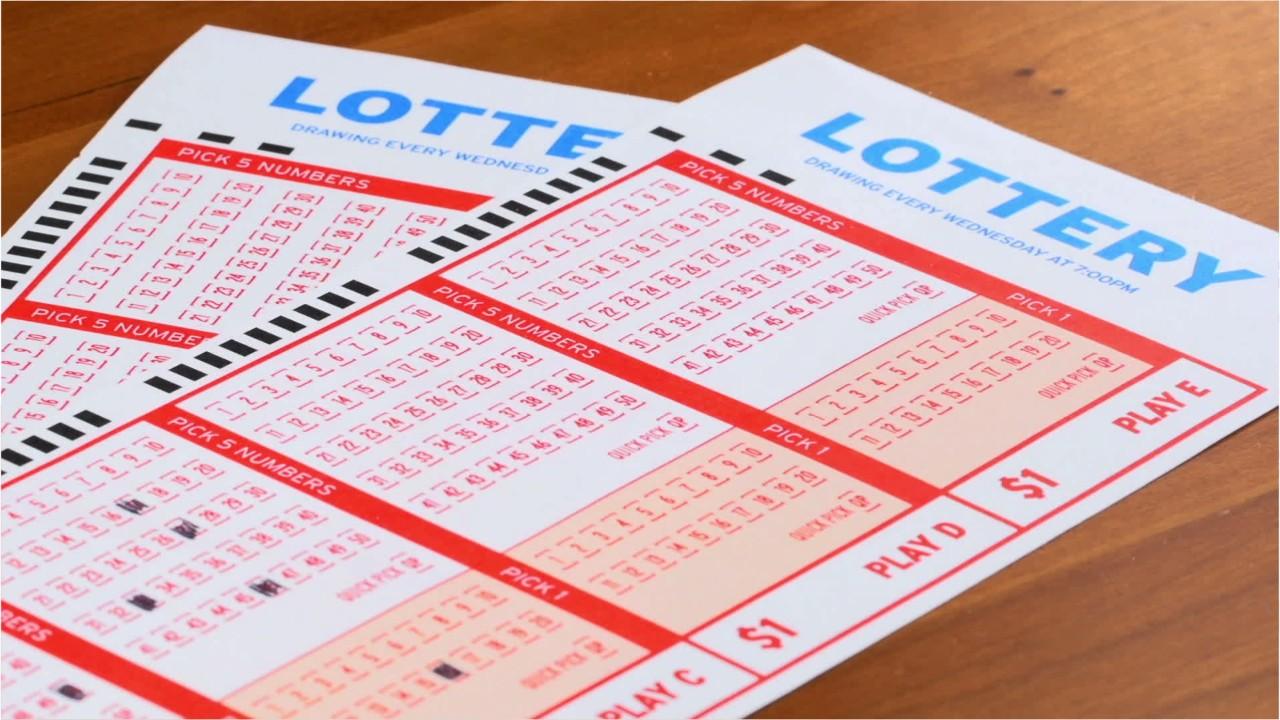
Lottery tickets have fascinated people for centuries, offering a tantalizing chance at instant wealth. But what do you really know about these little slips of paper? Did you know that the first recorded lottery dates back to 205 BC in China? Or that some lotteries fund public projects like schools and parks? Lottery tickets aren't just about luck; they’re steeped in history, statistics, and even psychology. Whether you're a casual player or a lottery enthusiast, understanding the facts behind these tickets can make your next purchase more interesting. Ready to learn some surprising truths about lottery tickets? Let's dive in!
History of Lottery Tickets
Lottery tickets have a rich history that dates back centuries. Here are some fascinating facts about their origins and evolution.
-
The first recorded lottery took place in China during the Han Dynasty between 205 and 187 BC. It helped fund major projects like the Great Wall.
-
In ancient Rome, lotteries were used as a form of entertainment at dinner parties. Guests received tickets, and winners took home prizes.
-
The first modern lottery was established in 15th-century Burgundy and Flanders to raise funds for fortifications and aid the poor.
-
England's first state lottery was held in 1569. Queen Elizabeth I organized it to raise money for public works.
-
The oldest running lottery is the Dutch Staatsloterij, established in 1726. It continues to operate today.
Lottery Tickets Around the World
Lotteries are a global phenomenon, with each country having its unique approach. Let's explore some interesting facts about lotteries worldwide.
-
Spain's Christmas Lottery, "El Gordo," is the world's largest lottery. It has been held since 1812 and offers massive prizes.
-
In Japan, lotteries are known as "takarakuji." They are government-run and have been popular since the 17th century.
-
Australia's first lottery was held in 1881 to raise funds for the Sydney Hospital.
-
In India, lotteries are state-run, with Kerala being the first state to establish one in 1967.
-
South Africa's National Lottery was launched in 2000, with proceeds supporting various charitable causes.
How Lottery Tickets Work
Understanding how lottery tickets function can be intriguing. Here are some key facts about their mechanics and operations.
-
Lottery tickets typically feature a set of numbers. Players must match these numbers to those drawn in the lottery.
-
The odds of winning a lottery vary greatly depending on the game. For example, the odds of winning the Powerball jackpot are 1 in 292.2 million.
-
Many lotteries use random number generators (RNGs) to ensure fairness in the drawing process.
-
Some lotteries offer instant-win tickets, where players can scratch off a coating to reveal if they've won.
-
Syndicates, or groups of people pooling their money to buy tickets, can increase the chances of winning.
Famous Lottery Wins
Winning the lottery can be life-changing. Here are some notable lottery wins that have made headlines.
-
In 2016, three winners shared the largest Powerball jackpot in history, totaling $1.586 billion.
-
Mavis Wanczyk won $758.7 million in 2017, the largest single-ticket jackpot in U.S. history.
-
A British couple, Colin and Chris Weir, won £161 million in the EuroMillions lottery in 2011.
-
In 2002, Andrew Jackson Whittaker Jr. won $314.9 million in the Powerball lottery, one of the largest single-ticket wins at the time.
-
Gloria MacKenzie, an 84-year-old woman, won $590.5 million in 2013, making her the largest sole winner of a U.S. lottery jackpot.
The Impact of Lottery Wins
Winning the lottery can have profound effects on individuals and communities. Here are some facts about the impact of lottery wins.
-
Many lottery winners choose to remain anonymous to protect their privacy and security.
-
Some winners experience "sudden wealth syndrome," a condition where they struggle to manage their newfound fortune.
-
Lottery winnings are often subject to taxes, which can significantly reduce the final payout.
-
Many winners use their money to support charitable causes, creating positive impacts in their communities.
-
Some lottery winners invest their money wisely, ensuring long-term financial stability.
Myths and Misconceptions
Lotteries are surrounded by myths and misconceptions. Here are some facts that debunk common lottery myths.
-
Myth: Lottery winners always end up broke. Fact: While some do, many winners manage their money responsibly.
-
Myth: The lottery is rigged. Fact: Lotteries are heavily regulated to ensure fairness and transparency.
-
Myth: Buying more tickets increases your chances of winning. Fact: While it does slightly, the odds remain extremely low.
-
Myth: Only certain numbers are lucky. Fact: Lottery numbers are drawn randomly, so no number is luckier than another.
-
Myth: You can predict lottery numbers. Fact: Lottery outcomes are entirely random, making predictions impossible.
Fun Facts About Lottery Tickets
Lottery tickets have some quirky and fun aspects. Here are some light-hearted facts to enjoy.
-
Some people use significant dates, like birthdays and anniversaries, to choose their lottery numbers.
-
In some cultures, certain numbers are considered luckier than others. For example, the number 8 is lucky in Chinese culture.
-
The largest unclaimed lottery prize in the U.S. was $77 million. The ticket expired without anyone coming forward.
-
Some lotteries offer second-chance drawings, giving players another shot at winning with their non-winning tickets.
-
In the U.K., unclaimed lottery prizes are used to fund various charitable projects.
The Future of Lottery Tickets
The lottery industry continues to evolve with technology. Here are some facts about the future of lottery tickets.
-
Many lotteries now offer online ticket purchases, making it easier for players to participate.
-
Mobile apps allow players to check results, purchase tickets, and even join syndicates from their smartphones.
-
Blockchain technology is being explored to enhance the transparency and security of lottery systems.
-
Some lotteries are experimenting with virtual reality (VR) to create immersive drawing experiences.
-
As technology advances, the lottery industry will likely continue to innovate, offering new and exciting ways to play.
The Final Spin
Lottery tickets hold a mix of excitement and mystery. From their ancient origins to today's massive jackpots, they’ve always captured our imagination. Whether you're dreaming of a big win or just enjoy the thrill, knowing these 40 facts adds a layer of fun. Remember, while the odds might be slim, the joy of playing and the hope it brings can be priceless. Just play responsibly and enjoy the ride. Who knows? Your next ticket might just be the lucky one. Keep these facts in mind, share them with friends, and maybe even impress someone with your newfound knowledge. The world of lottery tickets is vast and full of surprises. So, next time you buy one, you’ll have a deeper appreciation for the history and stories behind it. Happy playing!
Was this page helpful?
Our commitment to delivering trustworthy and engaging content is at the heart of what we do. Each fact on our site is contributed by real users like you, bringing a wealth of diverse insights and information. To ensure the highest standards of accuracy and reliability, our dedicated editors meticulously review each submission. This process guarantees that the facts we share are not only fascinating but also credible. Trust in our commitment to quality and authenticity as you explore and learn with us.


